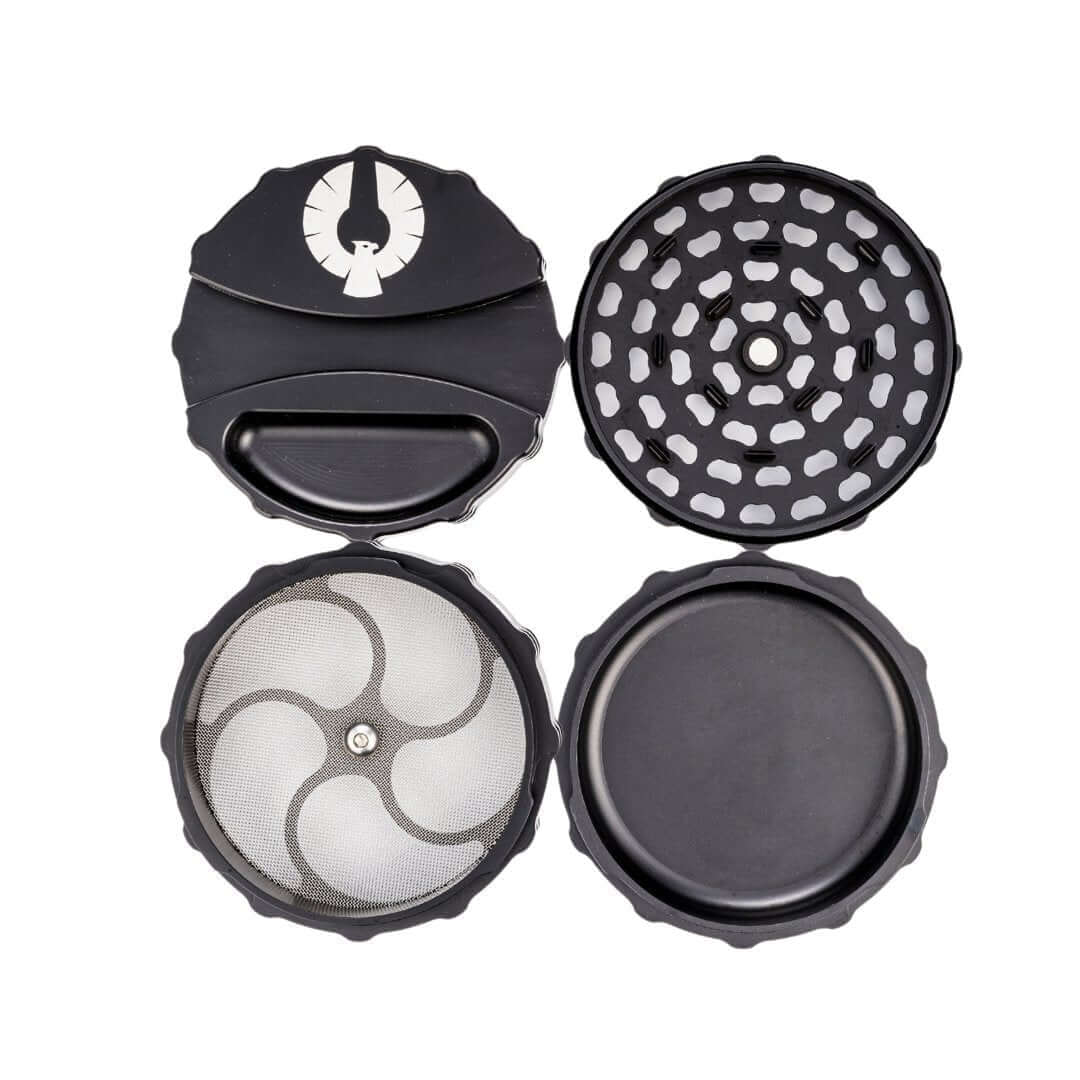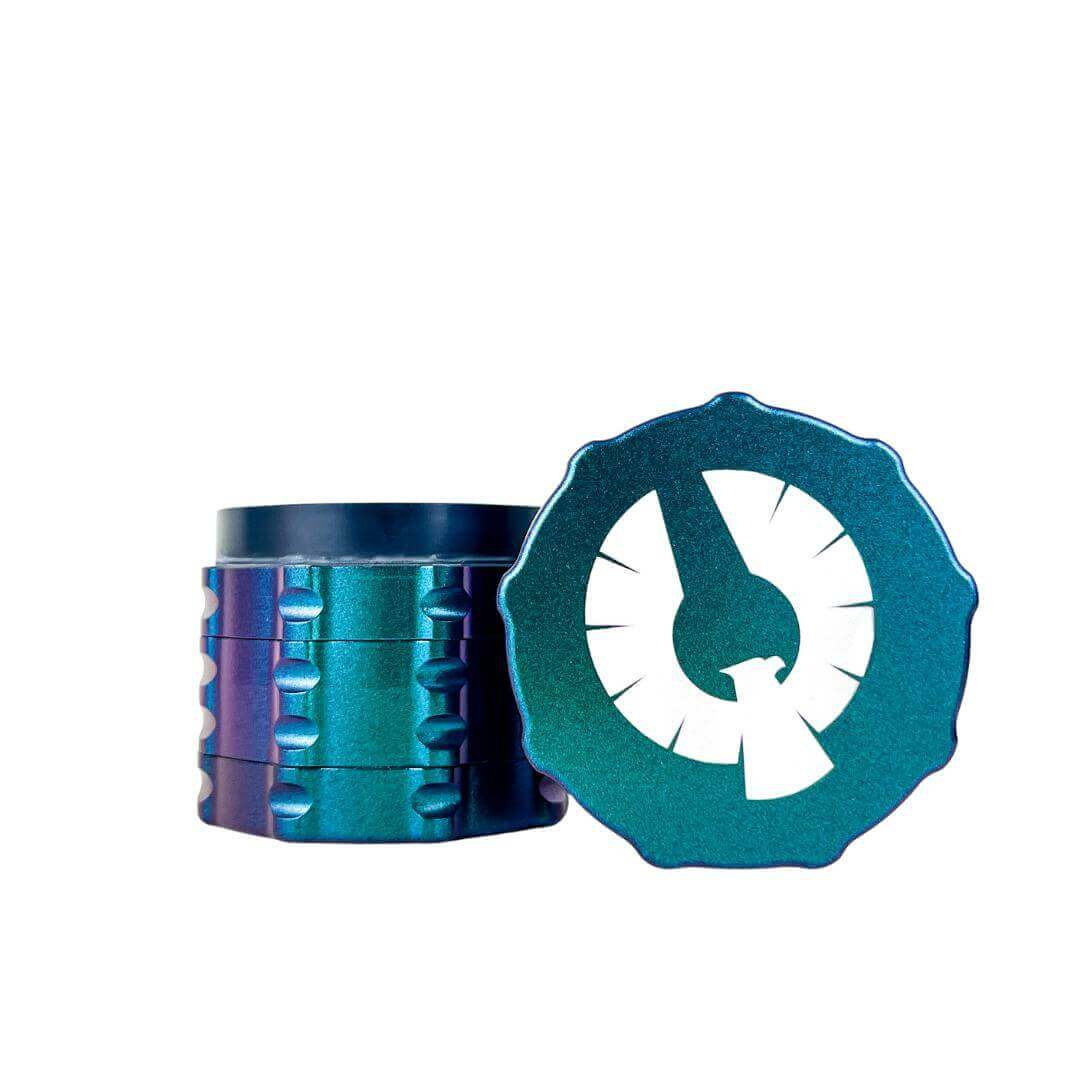Your Cart is Empty
FREE Shipping Over $100
FREE Shipping Over $100
Shop Herb Grinders
Did the DEA Just Toss Ancillary Brands and Smoke Shops a Life Preserver with Schedule III Cannabis?
May 07, 2024 4 min read
The illogical placement of cannabis on Schedule I of the Controlled Substances Act has hamstrung headshops, smoke shops, and the brands that they carry for far too long. Is that about to change as the Feds mull moving marijuana to Schedule III?

The DEA sent shockwaves through the counter culture last week with an announcement that they are recommending a federal rescheduling of the cannabis plant from Schedule I (where it currently sits alongside heroin) to Schedule III where its medicinal value would be recognized.
Here is how the DEA describes Schedule I:[W]hen it comes to a drug that is currently listed in schedule I, if it is undisputed that such drug has no currently accepted medical use in treatment in the United States and a lack of accepted safety for use under medical supervision, and it is further undisputed that the drug has at least some potential for abuse sufficient to warrant control under the CSA, the drug must remain in schedule I. In such circumstances, placement of the drug in schedules II through V would conflict with the CSA since such drug would not meet the criterion of "a currently accepted medical use in treatment in the United States." 21 USC 812(b).
Clearly, cannabis has no business being classified in such a way, so many activists and advocates for the plant saw the rescheduling announcement as a long-awaited victory. Still others, those more wary of Uncle Sam’s reaching hands, began raising red flags regarding the proposed policy change.
Who is right? Who knows! One thing we know for sure, though, is that the unfair stigma stuck to the cannabis plant and industry doesn’t just affect the financial bottom line of weed farmers, hash makers, and dispensary operators. It has also had a crippling effect on ANY business that can even tangentially be considered to be related to cannabis - like cannabis grinders, or rolling papers, or the head shops and smokeshops that provide them to the public.

Due to the Schedule I status of cannabis, companies like Phoenician Grinders suffer from financial discrimination from all angles, and our wholesale partners with brick and mortar storefronts do too.
For example, here are just some of the restrictions we face due solely to a correlation to cannabis:
Banking Restrictions - When it comes to providing the coolest cannabis grinders in the universe, from how we process payments to how we safely store and access our operating capital, our options for banking are currently severely limited. With so few options, there is no “shopping around” for better rates or service so we all just have to accept paying 2-4% higher transaction fees and constantly worrying about losing our bank account.
In theory, moving cannabis from Schedule I to Schedule III would ease these restrictions across the board and would reduce the risk to the point were more banks, with more competitive rates and programs, would enter the cannabis and cannabis-adjacent marketplaces. This should help everyone from cannabis growers to cannabis grinders. HOWEVER, we just don’t know how sweeping such changes will be since, technically, Schedule III only applies to medical cannabis, not recreational. Hey, we produced the world’s best medical grade grinder, does that count?!
Tax Burdens - Currently, cannabis brands, dispensaries, and even head shops cannot simply deduct business expenses at tax time like, ya know, EVERY OTHER INDUSTRY DOES. The prohibition on business deductions in Section 280E of the Internal Revenue Code is one of the greatest barriers to success for many counter culture companies. Moving cannabis to Schedule III would allow cannabis producers and retailers to deduct the costs of selling their product (ie., payroll, rent, advertising) for the purposes of federal income tax filings. This would be huge, but will it apply to all of us, or just “medical marijuana” producers and retailers? We just don’t know yet.
Advertising Biases - Although some brands seem to sneak around the algorithm, Phoenician Grinders (as just one example) is not allowed to place paid/sponsored ads on platforms like Facebook, Instagram, TikTok, or Reddit… or virtually anywhere. All because of an arm’s-reach relationship with the cannabis plant. This discrimination carries over to email marketing, SMS marketing, and pretty much any sort of advertising that requires cooperation from a company that doesn’t want to risk losing their own bank account by affiliating with a company that might be appealing to cannabis consumers.
As the perennial picker of economic winners and losers, the federal government rarely carves out lanes for success for mom n’ pop businesses. Instead, they tend to grease the skids for corporations, conglomerates, and consolidation.
This recommendation from the DEA is just that, and it still has to be approved by the White House Office of Management and Budget (WBO). In 2020, President Biden campaigned on “legalizing” cannabis and while this is a far cry from that, his administration will be eager to show progress on this proposal before the November election.
Assuming it happens, there is no reason to think that it would make anything worse for those of us in the counter culture / head shop / smoke shop realm. Easing of banking and tax burdens alone would give us all a much needed boost.
It will be interesting to see how peripheral markets to cannabis get included, or left behind, by this half-step in the right direction.
We will report back once the smoke clears a bit - until then, we have to get back to making the world’s best weed grinders here at Phoenician.
Also in The Grind

Understanding Cannabis Terpenes: Enhancing Your Experience
November 02, 2025 5 min read
Terpenes play a crucial role in the flavor and effects of cannabis, yet they’re often overlooked. This article breaks down what terpenes are, how they work with cannabinoids, and how to use them to tailor your cannabis experience. Discover the science behind the smells and effects of your favorite strains.

The Endocannabinoid System: How Cannabis Interacts with Our Bodies
October 19, 2025 2 min read
Continue Reading
The Ultimate Grinder Guide: How to Choose the Right Grinder for You
October 10, 2025 3 min read
Continue Reading






